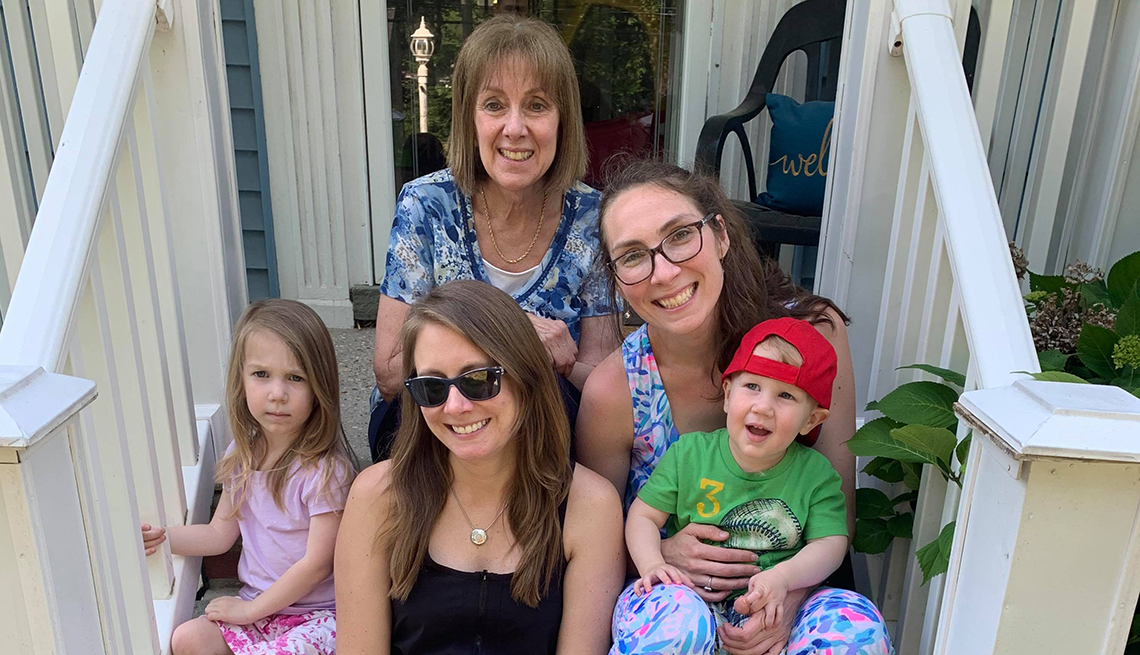Play all audios:
GRANDPARENTS TAKE ON MORE Since the pandemic began, grandparents and other older family members have played critical roles in helping families weather everything from pandemic lockdowns to
remote work and schooling. They’ve provided childcare for parents working from home with kids nearby. Grandparents have become tutors for children learning on screens through remote
education. And when parents get sick with COVID-19 and have to quarantine, many grandparents temporarily take in grandchildren. And they’re now stepping in as caregivers for children who
have lost a parent to COVID-19. Nationwide 2.6 million children are growing up in “grandfamilies” — being raised by grandparents or relatives and family friends — according to the new
report from Generations United. Taking on that responsibility can feel overwhelming, Peterson Lent says. “With little or no time to plan, [grandparents] are looking for how to meet the
child’s basic needs,” Peterson Lent says. The pandemic has exacerbated the challenges, says Lisa Grodsky, program operations manager with the Oakland Livingston Human Service Agency
(OLHSA), a community action agency in Pontiac, Michigan, who also runs the Grandparents Raising Grandchildren program. “It’s complicated and heartbreaking,” she says. While many
grandparents are willing to provide family support, the responsibilities pose additional challenges. Caring full-time for grandchildren can lead to negative physical and emotional health for
grandparents due to significant changes in routine, Grodsky says. Some grandparents move, endure strained relationships with other family members, struggle with new financial burdens
associated with childcare, and end up sacrificing their own future plans and self-care needs to put those of the child first. That can be particularly detrimental, Grodsky says. Older adults
caring for children orphaned by COVID-19 may not get enough rest, proper nutrition and medical care, and can suffer from mental health issues, including depression, she says. “The
isolation from peers and extended family, and exhaustion could aggravate preexisting conditions like diabetes and high blood pressure,” Grodsky says. In Philadelphia, Octavia Tokley, 41, was
in shock after her husband Erin Tokley, 47, died of COVID-19 on March 3. He was a police officer, minister and mentor in the community and his death left a massive hole in the fabric of
their family life. It meant Tokley became a single mother to their 5-year-old daughter, Amethyst. Ikelyn Tokley (left) and Deanna Crawford (middle) are supporting Octavia Tokley (right) as
she raises her daughter Amethyst following the death of her father from COVID-19. Photo courtesy Octavia Tokley Since her husband’s death, Tokley has leaned heavily on her mother-in-law,
Ikelyn Tokley, 70, and sister Deanna Crawford, 55, for help caring for Amethyst. But both women are grieving, too. Erin Tokley “was a sergeant,” Ikelyn says. “He was always protecting us
and telling us what to do.” The family never imagined the pandemic would take his life. “For somebody to lose someone to COVID, I think that’s just a wake-up call,” Crawford says. Crawford
and Ikelyn Tokley have played a role in Amethyst’s life since birth, but this has tested them. “All of us have taken on more,” says Ikelyn, who moved in with Octavia and Amethyst after
her lease was up.

